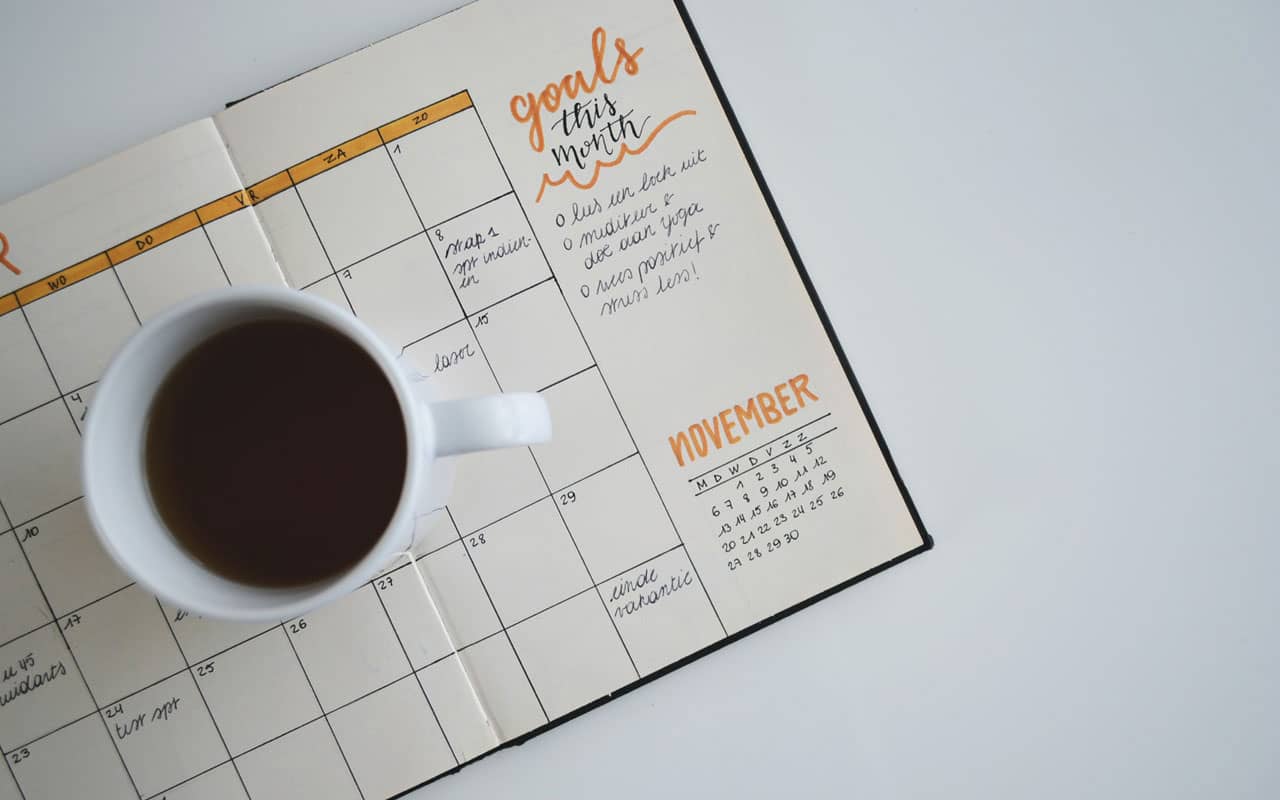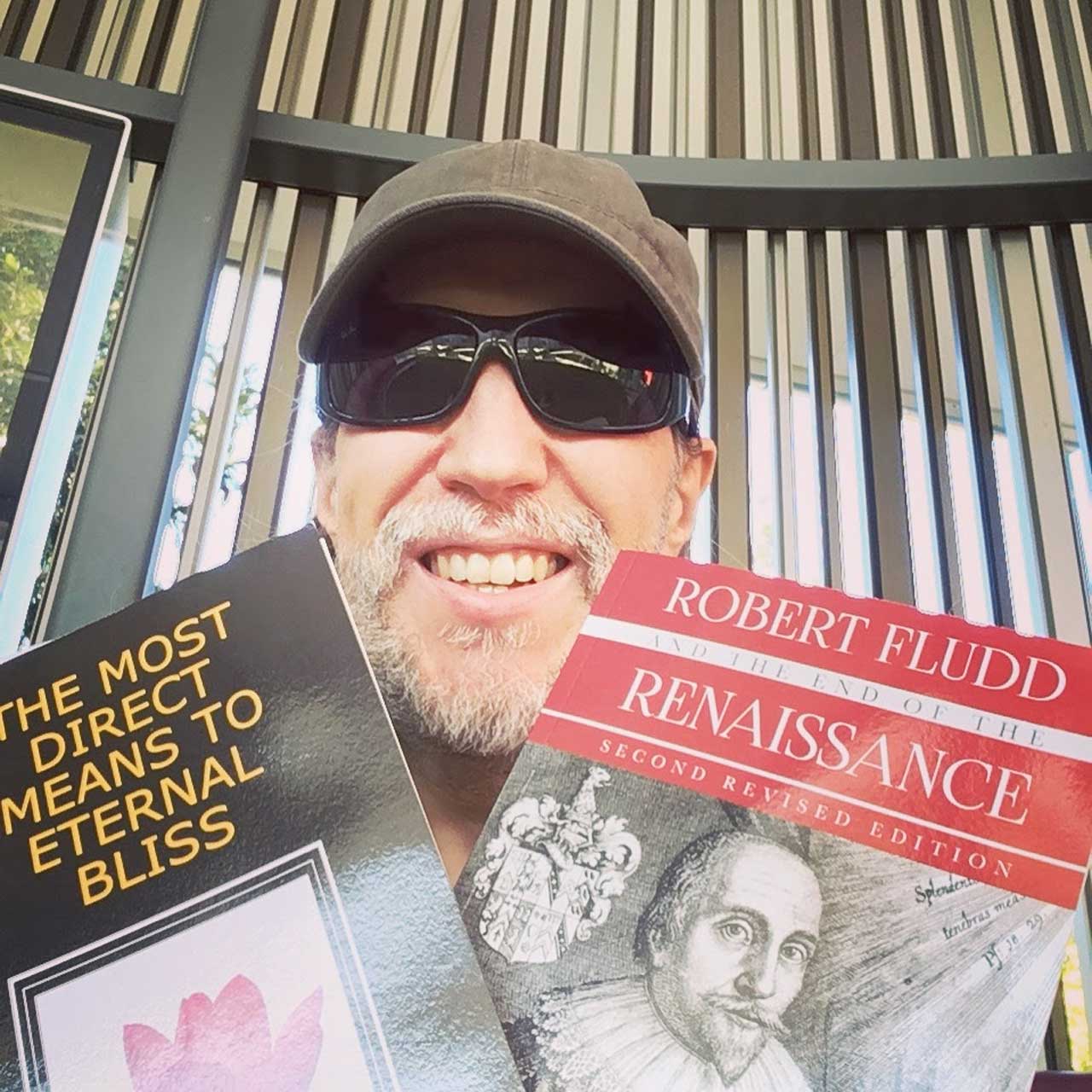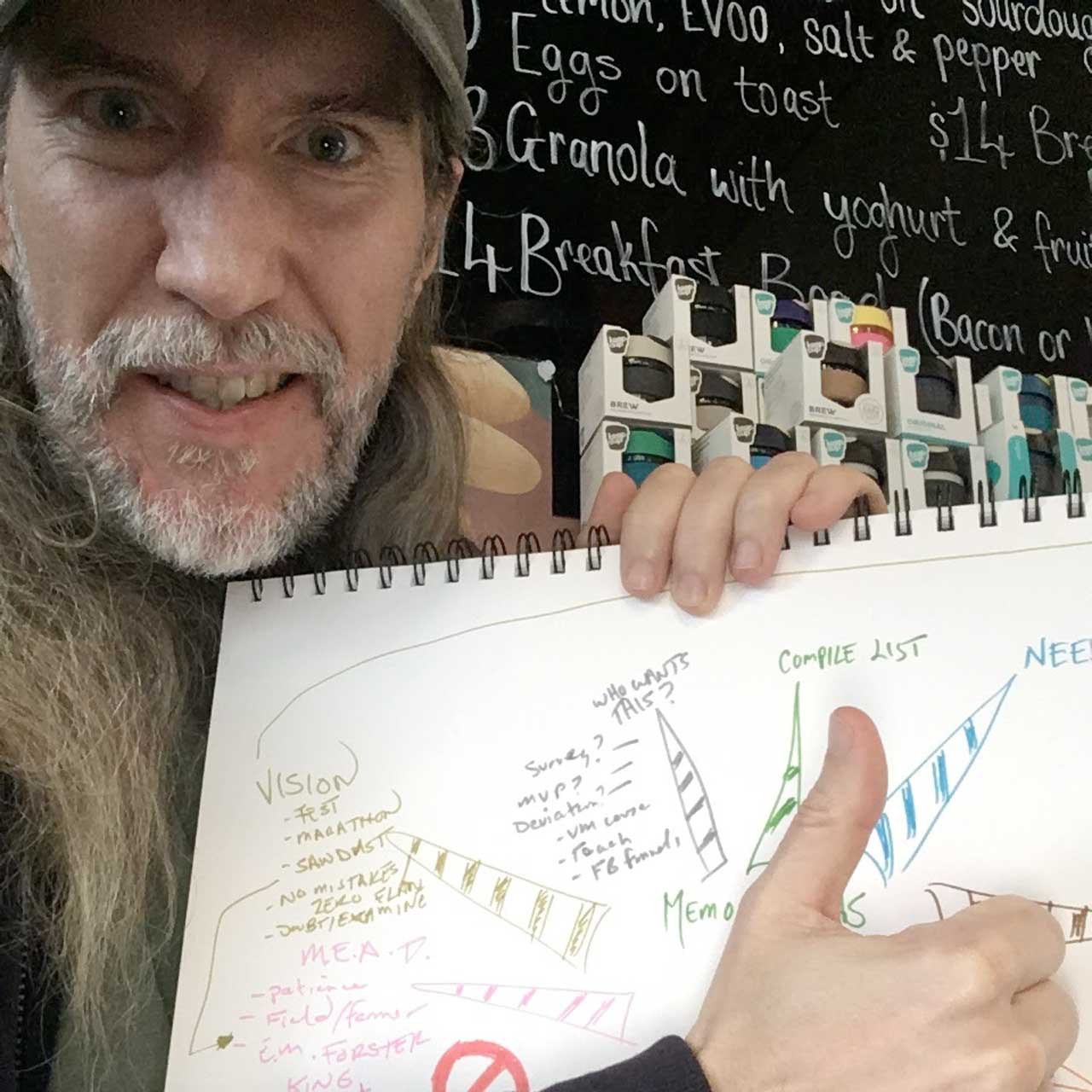Podcast: Download
Subscribe: Apple Podcasts | RSS
 Wouldn’t it be great if you could snap your fingers and instantly concentrate on studies?
Wouldn’t it be great if you could snap your fingers and instantly concentrate on studies?
The problem is… you know some people can. But no one has shown you how.
Today’s your lucky day because I once suffered from an attention span so frazzled, I nearly had to drop out of grad school. But I turned it all around and you can too.
Easily.
Why am I so convinced?
The reality is this: There are tons of science-backed techniques that help students of every age concentrate on studies.
It doesn’t have to do with your personality or your discipline. It has to do with how you design your learning life as a kind of game you can win.
So if you’re ready to start stacking the chips in your favor, let’s get started.
Here’s what this post will cover:
Why Can’t I Focus On Studying?
How to Focus on Studying: 11 Proven Strategies
1. Create Clear and Achievable Goals
2. Keep A Rigorous Study Schedule
3. Use Spatial Anchors
4. Block Out Distractions The Easy Way
5. Train Your Attention Span
6. Place Long-Term Outcomes First
7. Put Accountability On Autopilot
8. Track Your Progress
9. Use Tangible Study Tools
10. Keep Your Body Fit
11. Breathe and Meditate
How to Concentrate On Studies The Easy Way
Ready to learn how to concentrate on studies? Let’s go.
Why Can’t I Focus On Studying?
The main reason people can’t concentrate isn’t because they don’t know how to focus on studying.
It’s usually because they:
- Lack clearly defined goals
- Haven’t scheduled specific study times
- Do not study in specially designated areas
- Fail to strategically block out distractions
- Have not trained their attention span
- Focus on getting good grades instead of developing skills
- Do not seek accountability from mentors, peers, or themselves
- Have no tracking systems in place
- Rely on smartphones and apps instead traditional and tangible study tools like physical notebooks and flashcards
- Include no dietary and physical exercises regimes in their daily routines
- Do not meditate or have knowledge of breathing exercises that can create a state of presence
To sum all of this up based on research, failing to attend to each of these points keeps you trapped in endless loops of mind wandering. According to scientists in the journal NeuroImage, too many learners have no strategies to help them focus on tasks.
It’s not just that people have multiple tabs open on their browsers and allow themselves to be endlessly distracted by notifications on their phones. They cannot enter what is commonly called “flow” (governed by the Task Positive Network of the brain) because of all the factors listed above.
The good news is that even the simple act of breathing strategically can calm your nerves so thoroughly within seconds that you can get through far worse than lack of concentration while studying. You can potentially even land a plane suffering mechanical failure!
How to Focus on Studying: 11 Proven Strategies
Let’s look at each of the eleven strategies in detail.
1. Create Clear and Achievable Goals
Have you ever caught yourself saying something like, “I’m going to read 11 articles by the end of the day and remember everything!”
If so, I’ve been there. And guess what? It never works.
Instead, I’ve learned to create goals I can actually achieve. Long before James Clear wrote his international hit Atomic Habits, I got so sick and frustrated with my fanciful overreaching that I knew I had to change.
I took a long hard look at how I was reading and using memory techniques and realized I was trying to have it all instead of focusing on only the most relevant information.
I started to think of it as the Faust Syndrome. (Faust is a fictional character who sold his soul to the devil in order to enjoy universal knowledge of everything. He ultimately realized knowing everything in exchange for eternal torment really wasn’t worth anything compared to the satisfaction of functional knowledge.)
Although it would be many years before I heard about the 80/20 principle, I was aware of something called “the rule of redundancy.”
Basically, it means most of the words in a book have nothing to do with its core points. Rather, they’re needed for context and innuendo.
So instead of trying to memorize the entire book, as I wanted to do (essentially selling my soul to the devil for nothing in return), I learned to set a simple goal: I would extract and memorize just 3 points from each chapter in a book and nothing more.
Here’s how it works:
Over the years, some people have smirked at the system I came up with, but I just ignore their criticism.
And I’m glad I did because I wound up picking up a second MA in Media and Communications while completing my PhD! This was possible because I learned to set realistic goals and only extract the most important information from books.
And it all works very well because (so long as you’re using memory techniques correctly) your brain will fill in the gaps. You’ll remember far more than just three points per chapter, especially if you also use other accelerated learning techniques.
2. Keep A Rigorous Study Schedule
If you’re anything like me, you don’t always feel like studying.
But let’s face the facts:
Time is flowing by whether we like it or not. And exam dates aren’t going to be changed just because we don’t feel ready.
During my PhD, I sat for two field exams and a dissertation defense. Because I had to travel from either New York or Berlin to Toronto to attend them, not only could I not easily extend the dates — it would have incurred a great cost if I did.
That’s why I always scheduled time in the morning, afternoons, and evenings for reading. Three reading sessions a day still feels right for me years later, too. (I completed my doctorate in 2009.)
Three reading sessions a day might be too much or too little for you, but the exact amount is less important than the consistency.
As Graham Allcott points out in his excellent book How to be a Knowledge Ninja, “it’s only your routine that matters.” And he really means YOUR routine.
As Allcott explains, too many people are ruled by their “lizard brain.” They’re scanning the environment and comparing themselves to others. But he suggests you develop your own checklists and explore your own personality to help design it.
He’s right, and from my experience I can tell you this:
Expect your schedule preferences to change.
For example, for many years I used to love reading in the morning. Now I prefer the evening. But I still read in the morning anyway, even if it’s just a few sentences. Usually I find that once I get a couple of words down the hatch, the rest flows in a lot easier.
And if you make it an iron-clad rule with no exceptions that you’ll read at least once sentence at the scheduled time, I think you’ll be delighted by how easy it is to keep reading.
3. Use Spatial Anchors
Nearly every morning I study in one of three places. It’s really important I have variety, and I’ll explain why.
At the moment, I’m researching for a book that includes references to both Advaita Vedanta and the hermetic art of memory.
Frankly, some of the books are boring. But I can’t write a good book without references to them. I also won’t remember much if I don’t go through what is called “diffuse thinking” after taking notes from my reading.
Now, I just said that mind wandering is a bad thing and can be stopped by getting yourself in the zone. This remains true. However, there is a time when it works wonders. And that is before and after reading.
Learning expert Barbara Oakley explains this well in her popular Learning How to Learn course. Basically, your brain percolates the information at the neurochemical level while you’re taking a break — something walking between locations accelerates for reasons covered by Alex Pang in Rest: Why You Get More Done When You Work Less.
In fact, Pang suggests that the effects of diffuse thinking are so profound, you’re best served by carrying a notebook with you. He points out that both Tchaikovsky and Beethoven walked with journals, not to mention the film directors Billy Wilder and David Lean.
Moreover:
“Thomas Hobbes walked with a cane that had an inkwell built into the handle and would write on a piece of paper attached to a board. The great German mathematician David Hilbert wrote down ideas as he walked… Walking doesn’t look like an intellectual activity, and there are plenty of times when it’s purely utilitarian or recreational, but we can learn to use it to help us think better.” (an excerpt from Pang’s Rest)
The second reason having fixed locations is so powerful is called “matching conditions.” As Bruce Goldstein explains in his textbook Cognitive Psychology, he once needed to remember to bring a movie to a lecture.
As part of triggering his recall, he thought of his office first:
“The key to remembering the DVD was that I retrieved the thought ‘Bring the DVD’ by returning to the place where I had originally encoded that thought. This example illustrates the following basic principle: Retrieval can be increased by matching the conditions at retrieval to the conditions that existed at encoding.”
The success of the Memory Palace technique is based on the fact that our minds “match” information with space.
When I was sitting in those field exams and answered the questions that determined my ability to earn the PhD, I often thought back to the locations where I’d read the books I was responsible for knowing. And I use the exact same “matching conditions” to remember what I want to write about in my books.
Finally, when it comes to rotating the exact locations where I read, I do this because novelty has been shown to improve memory. I have a few places I read in parks, a few favorite cafes, and I routinely visit new cafes. Even if I suspect that they will not have coffee, I give it a try anyway.
The research I’ve read always proves true: I remember more of what I read simply by making a point of combining walking to and from anchored and new places to study.
4. Block Out Distractions The Easy Way
Actually, what I consider the easy way might strike you as incredibly hard. That’s because those “study walks” I just mentioned usually take place without my smartphone.
That’s right. I kiss my wife goodbye and tell her I’ll be back when I get back. Then, I go out with nothing more than my study materials and note books. (Sometimes I bring a camera to grab a pic for social media, but not always. Even the thought of documenting my studies can be distracting!)
Whether or not you go to these extremes, the point is the same: If you don’t have anything that rings, pings, or buzzes near you, it can’t distract you. The sounds of traffic, cafe chatter, and birds in the trees can actually help you focus if it’s in the background.
But some people think that part of our minds scan the environment for distractions from our phones. It’s sometimes called “anticipation addiction” and is related strongly to gambling.
Reading from physical books instead of a device is also very useful. Not everyone agrees with me, but I rarely read from digital anymore, preferring print for a few reasons:
First, print has no multiple tabs. It won’t vibrate or spike your dopamine with a notification.
Second, you can use the pages of books as mini-Memory Palaces. This feature is tremendously useful.
Third, your brain can track the space of physical books in a way that is impossible with digital books. I suggest you read The Case for Mental Imagery if you’re interested in more scientific research on just how important space is for learning and memory.
5. Train Your Attention Span
A lot of people think that brain training apps will improve their attention span.
Maybe.
But since we want to focus on information and be able to recall it under test conditions where we’re not allowed to access any kind of computer, does that approach really make sense?
Instead, seek out brain exercises that are not reliant on devices.
One of the best I know involves nothing more than memory techniques and a deck of playing cards.
You have to learn something called the Major System so you can give each card a unique image. Then, using a Memory Palace, you simply shuffle them up and memorize the unique order by making the images interact.
This simple exercise not only increases your attention span — it also helps you learn how to memorize information that is similar without any bleedthrough or what I think of as “borderblur.”
Learning to play an instrument or memorizing lyrics is also a great way to increase your attention span because performing music requires extended focus.
I practice what I preach in this regard, and even memorize songs in other languages just for the attention span benefits it brings. As a result, I never say “I can’t concentrate on studying.”
The best part? Scholar Gunter Kreutz has shown that singing also promotes healing and improves mood.
6. Place Long-Term Outcomes First
Instead of worrying about grades, focus on your vision.
Sure, I have quite a few A+ grades on my transcript. But guess what? No one cares, including me.
Instead, I completed all my degrees because I wanted to fulfill the vision of being a writer and teacher. If I had focused only on grades in the short term, I would have endlessly frustrated myself and felt empty later.
That’s why I’m so glad I just did the best I could and made sure I enjoyed the journey along the way. In addition to working on my degrees, I also worked on my writing. I did not enjoy writing academic papers one bit, but loved every moment working on poetry and novels.
And I supplemented many of the dry and boring film theory textbooks I needed to read by working at the legendary Queen Video and promoting cool events.
These supplementary experiments taught me how to run a small publishing enterprise and organize events — key skills I have drawn upon far more than my knowledge of Shakespeare. Sure, I got an A+ in “Shakespeare and his Contemporaries” in a third year English course at York University, but my career success in no way relies on that grade.
It never will either, but I draw upon the sum of all the experiences I added along the way to practice the comprehensive professionalism that has enabled me to run the Magnetic Memory Method Mission for nearly a decade.
What’s your vision? Focus on that and the grades will surely follow.
7. Put Accountability On Autopilot
There are at least three levels of accountability:
- Accountability to yourself
- Accountability to another person
- Accountability to a group
Sadly, some people don’t even practice one of these layers. And no doubt: effort will be involved and that will scare some people away.
But what if there was an easy way to “set and forget” accountability?
There is!
If you’re going to be accountable to yourself, I recommend The Freedom Journal. Other journals will do, but this one helps you create achievable study goals — and it’s hard to ignore the physical copy when you anchor it to space in your environment.
The way to get yourself motivated using another person can be summed up in three words: hire a coach.
If you’re skeptical that it works, just read some of the science that compares different levels of effectiveness based on the kind of coaching you get. When you pay for coaching and get the sessions on the calendar, your investment itself will pay off because loss avoidance will increase your “show up” and implementation rates.
As for groups, this approach can take a little more work, but it’s worth it.
Throughout my university years, I participated in study groups. We made it simple on ourselves: We met immediately after our classes. The best part? We walked from the classroom to the campus pub, giving our brains a bit of time for diffuse thinking before piling back into our books.
In grad school, my study groups were a bit more sophisticated. Since there was always more reading than anyone could expect to cover thoroughly, we would assign presentations to ourselves.
That way, if you had to cover five books or articles, you could scan four of them and focus deeply on just one of them. Then, your fellow study group participants let you know the most important points of the book they focused on.
Upon review, your brain had been primed to perceive those big points and all the minutia stuck better thanks to having your radar switched on.
To make sure it happened on autopilot, we scheduled each date throughout the semester in advance.
Sure, sometimes things happened and people couldn’t attend. But overall, by selecting serious students in advance, things went smoothly and we all were able to cover far more territory as a group than would have been possible as students on our own.
In sum, it doesn’t have to be lonely along the extra mile.
8. Track Your Progress
Too many students fail to concentrate because their responsibilities aren’t mentally manageable.
They’ve got syllabi scattered across multiple folders in their computers, or worse, they’ve done little more than bookmark pages on their university website. That’s a recipe for disaster.
Instead:
- Translate all of your reading obligations onto a physical calendar, including the titles of all the books and articles.
- Print out your syllabi as well and paste them into individual notebooks for each course.
- Then, schedule your reading and check off or cross out each book after you’ve completed it. You might even want to use multiple colors, such as blue for the first read, green for the second and red for the third.
As part of tracking your progress, put rewards in place. You can assign a movie night, museum visit or anything healthy and fun you love to do for after you complete a set of study tasks.
When it comes to your writing assignments, I used to keep track of the number of words I wrote on a daily basis. I also went out of my way to complete reading early so I could get writing started early.
That allowed me to consult with my teachers in advance to see if I was on the right track or if they had any additional reading they thought might supplement my research.
Without tracking my progress, I wouldn’t have created the spare time for seeking out their advice, and if I hadn’t gotten to them early enough in the semester, they wouldn’t have had time to give it.
9. Use Tangible Study Tools
Far too many students dump everything in Evernote or some other app and then wonder why they can’t find anything. My friend Charles Bryd has shown just how effective such tools can be — but if you’re like me, it’s a losing gambit.
If you’re struggling to remember your notes, give physical notebooks and flashcard or index cards a try.
I never suggest people throw out technology and am a huge fan of computers myself. But if you’re struggling, digital fasting and working with physical tools like pen and paper could be a huge boon for you.
Mind Mapping is one technique I highly recommend you explore. It’s not a magic bullet, but when it comes to focusing on big picture ideas and digging deeper into the minutiae, it’s really powerful.
It can also help you remember to study and work on assignments, which is one reason why I keep my Memory Journals where I can see them — and often carry them with me to those cafes I mentioned.
Frankly, it’s darn hard to forget your study commitments when your tools are too big to ignore!
10. Keep Your Body Fit
The Internet is loaded with dietary and exercise advice. This should be non-controversial in every way — endless scientific studies show that movement increases blood flow to the brain, for example.
There are also tons of foods that are proven to improve memory.
I don’t think we have to dwell on these points. It’s just obvious that you need to care for your body if you want the ability to focus on studying with any success.
11. Breathe and Meditate
I was lucky to learn how to meditate at a young age. But it wasn’t really until I was in my PhD years that I started a consistent, daily practice. Around the same time, I learned a number of breathing exercises.
Breathing has been shown to assist mental functioning. The trick is in remembering to watch your breathing.
Concentration meditation is a great way to assist the self-observation needed to monitor your breath.
Here’s a simple exercise:
When you’re reading a book, focus on your nostrils and imagine that you’re inhaling the words up from the page. Then, when writing your notes, imagine you are exhaling them onto the page — or assisting your hand as it writes with your breath.
This action can take a bit of practice, but it is worth it. One of my favorites sources of breathing exercises is Let Every Breath by Vladimir Vasiliev.
How to Concentrate On Studies The Easy Way
I know I’ve shared a TON of information in this post.
But there is an easy way to get started: Pick just one of the tips I’ve shared above. Put it into action. Then add another.
Soon, you’ll have a nice “habit stack” that will create what I call “cruising altitude.” What I mean by that is exactly what pilots talk about when flying aircraft — that wonderful sense of peace as you fly through the air.
Sure, there’s going to be turbulence as you study. Life happens and sometimes you have to make changes when you least expect something to come up.
But the more of these study survival techniques you have, the sooner and easier you’ll be able to get yourself back on course.
That’s how I managed to be so stable during my doctoral studies that I had time and attention span to pick up a second Masters degree while writing my dissertation.
How I pulled it off isn’t rocket science. It’s just normal science, and I hope you find the research materials I shared with you today useful supplementary reading.
Let me know if there’s anything I’m missing — and what do you say?
If you’re ready to concentrate on studies in a whole new way and want to learn how to use Memory Palaces to help you focus on studying, sign up for my free training today.
Related Posts
- Memory Loss Story And Memory Recovery Tips With Jennie Gorman
Memory loss is frightening. However, the solution may be simpler than you think. Jennie Gorman's…
- Delayed Gratification Tips For Memory Training With Matt Dobschuetz
If you don't have strategies for delaying gratification, you're robbing from your memory training efforts.…
- 7 Active Reading Strategies That Help You Remember More
Active reading strategies are often poorly misunderstood or lacking. Get these 7 active reading activities…

















